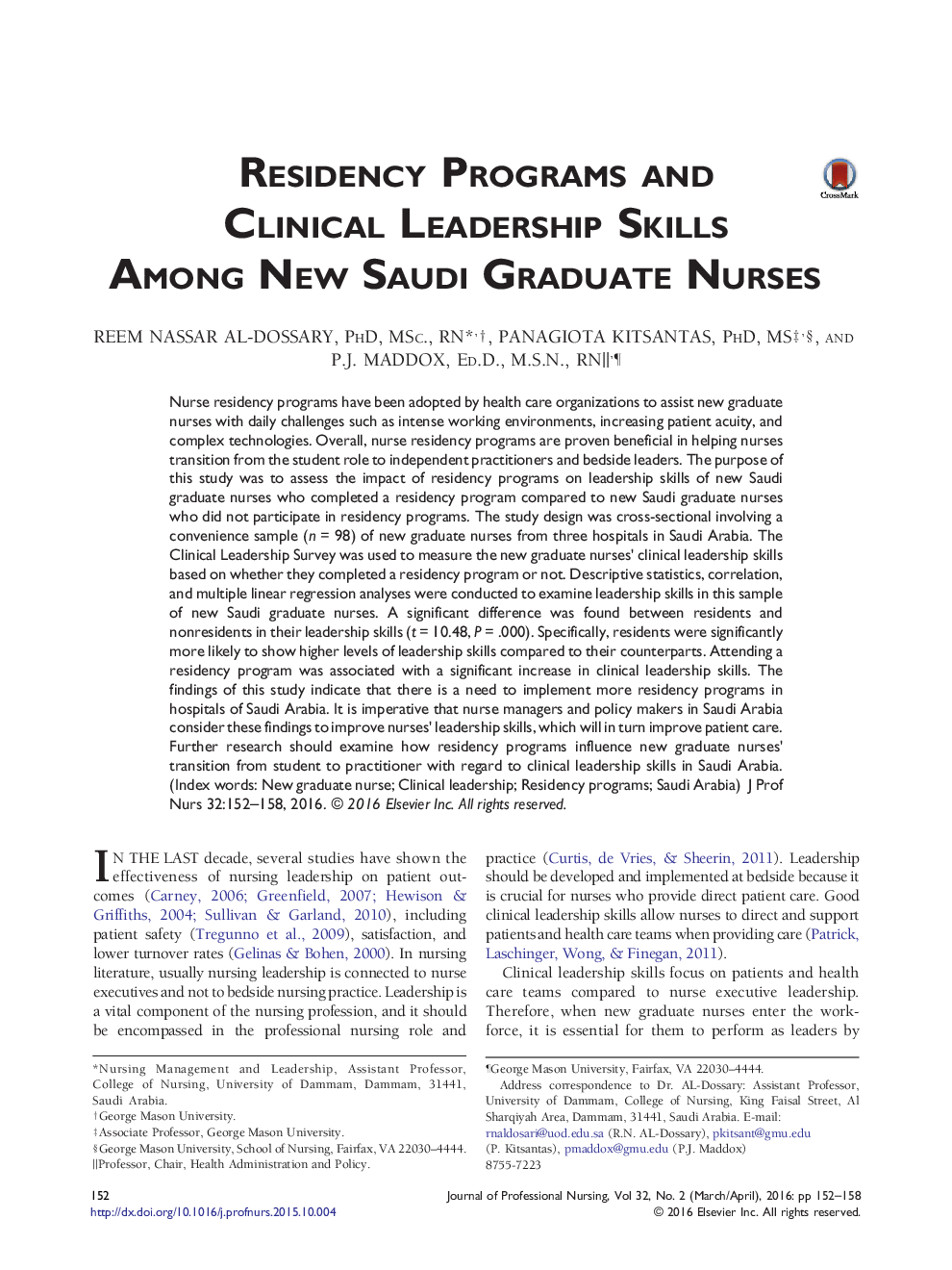| Article ID | Journal | Published Year | Pages | File Type |
|---|---|---|---|---|
| 2668149 | Journal of Professional Nursing | 2016 | 7 Pages |
•The findings demonstrate significant mean differences between residents and nonresidents in their overall clinical leadership skills.•Residents were more likely to have higher level leadership skills as they relate to clinical expertise, effective communication, collaboration, coordination, and interpersonal understanding when compared to nonresidents.•The implications of these findings for nursing practice in Saudi Arabia lie on the demonstrated importance of residency programs in the development and enhancement of leadership skills among the new graduate Saudi nurse.•The findings indicate the need to implement more residency programs in hospitals of Saudi Arabia.
BackgroundNurse residency programs have been adopted by health care organizations to assist new graduate nurses with daily challenges such as intense working environments, increasing patient acuity, and complex technologies. Overall, nurse residency programs are proven beneficial in helping nurses transition from the student role to independent practitioners and bedside leaders. The purpose of this study was to assess the impact of residency programs on leadership skills of new Saudi graduate nurses who completed a residency program compared to new Saudi graduate nurses who did not participate in residency programs. The study design was cross-sectional involving a convenience sample (n = 98) of new graduate nurses from three hospitals in Saudi Arabia. The Clinical Leadership Survey was used to measure the new graduate nurses' clinical leadership skills based on whether they completed a residency program or not. Descriptive statistics, correlation, and multiple linear regression analyses were conducted to examine leadership skills in this sample of new Saudi graduate nurses. A significant difference was found between residents and nonresidents in their leadership skills (t = 10.48, P = .000). Specifically, residents were significantly more likely to show higher levels of leadership skills compared to their counterparts. Attending a residency program was associated with a significant increase in clinical leadership skills. The findings of this study indicate that there is a need to implement more residency programs in hospitals of Saudi Arabia. It is imperative that nurse managers and policy makers in Saudi Arabia consider these findings to improve nurses' leadership skills, which will in turn improve patient care. Further research should examine how residency programs influence new graduate nurses' transition from student to practitioner with regard to clinical leadership skills in Saudi Arabia.
